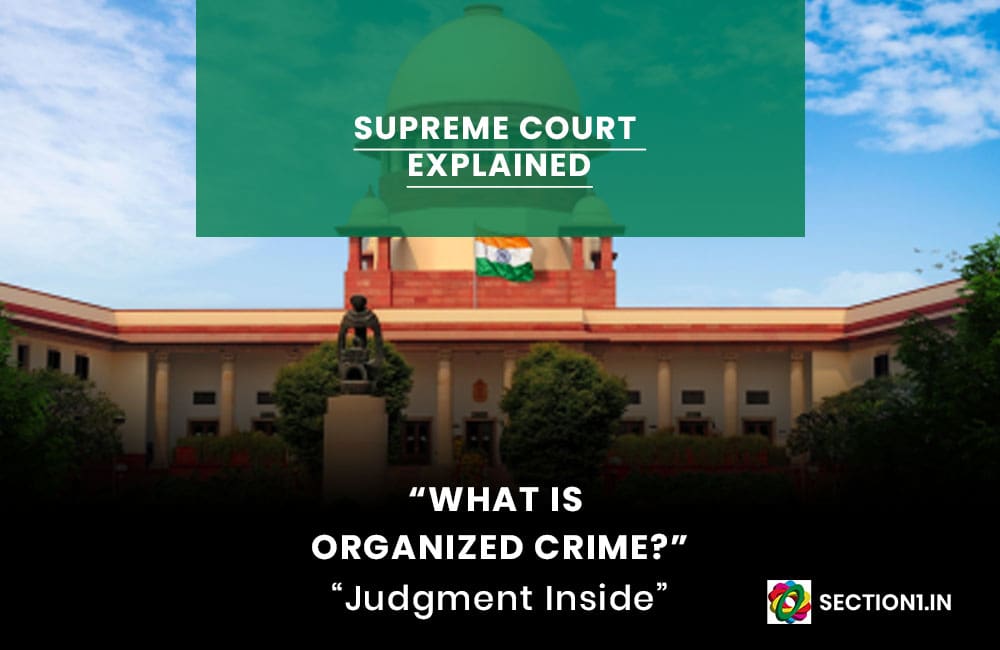- If the decision of the coordinate Bench of this Court in the case of Shiva alias Shivaji Ramaji Sonawane (supra) is looked into closely along with other provisions of the Act, the same would indicate that the offence of ‘organised crime’ could be said to have been constituted by at least one instance of continuation, apart from continuing unlawful activity evidenced by more than one chargesheets in the preceding ten years. We say so keeping in mind the following:
(a) If ‘organised crime’ was synonymous with ‘continuing unlawful activity’, two separate definitions were not necessary.
(b) The definitions themselves indicate that the ingredients of use of violence in such activity with the objective of gaining pecuniary benefit are not included in the definition of ‘continuing unlawful activity’, but find place only in the definition of ‘organised crime’.
(c) What is made punishable under Section 3 is ‘organised crime’ and not ‘continuing unlawful activity’.
(d) If ‘organised crime’ were to refer to only more than one charge sheets filed, the classification of crime in Section 3(1)(i) and 3(1)(ii) reply on the basis of consequence of resulting in death or otherwise would have been phrased differently, namely, by providing that ‘if any one of such offence has resulted in the death’, since continuing unlawful activity requires more than one offence. Reference to ‘such offence’ in Section 3(1) implies a specific act or omission.
(e) As held by this Court in State of Maharashtra v. Bharat Shanti Lal Shah (supra) continuing unlawful activity evidenced by more than one charge sheets is one of the ingredients of the offence of organised crime and the purpose thereof is to see the antecedents and not to convict, without proof of other facts which constitute the ingredients of Section 2(1)(e) and Section 3, which respectively define commission of offence of organised crime and prescribe punishment.
(f) There would have to be some act or omission which amounts to organised crime after the Act came into force, in respect of which the accused is sought to be tried for the first time, in the Special Court (i.e. has not been or is not being tried elsewhere).
(g) However, we need to clarify something important. Shiva alias Shivaji Ramaji Sonawane (supra) dealt with the situation, where a person commits no unlawful activity after the invocation of the MCOCA. In such circumstances, the person cannot be arrested under the said Act on account of the offences committed by him before coming into force of the said Act, even if, he is found guilty of the same. However, if the person continues with the unlawful activities and is arrested, after the promulgation of the said Act, then, such person can be tried for the offence under the said Act. If a person ceases to indulge in any unlawful act after the said Act, then, he is absolved of the prosecution under the said Act. But, if he continues with the unlawful activity, it cannot be said that the State has to wait till, he commits two acts of which cognizance is taken by the Court after coming into force. The same principle would apply, even in the case of the 2015 Act, with which we are concerned.
PARTY: THE STATE OF GUJARAT vs. SANDIP OMPRAKASH GUPTA – CRIMINAL APPEAL NO. 2291 OF 2022 (arising out of SLP (CRIMINAL) NO. 6101 OF 2021) December 15, 2022.



